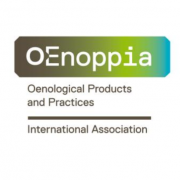
On this occasion, Jean-Marie Aurand – after having recalled the main missions of the OIV – gave a panorama of the state of the global vitivinicultural sector, highlighting the major trends and issues for the future.
Within this context, the discussions focused on a certain number of strategic and topical issues:
- the importance of standards, including those which are internationally recognised, in maintaining the essential characteristics of wine and ensuring the fluidity of trade,
- the role of the OIV as an intergovernmental reference organisation on the subject,
- the principles for setting additive limits,
- perspectives with regard to the labelling of ingredients.
Jean-Marie Aurand praised the quality of the collaboration developed over the years between the OIV and Oenoppia, which benefits from OIV observer status. The Oenoppia teams provide recognised expertise within the different expert groups of the Organisation and have been at the origin of several resolutions.
Oenoppia is an association that brings together the main stakeholders in the production of oenological products. Oenoppia members account for almost 90% of oenological products used in the world.
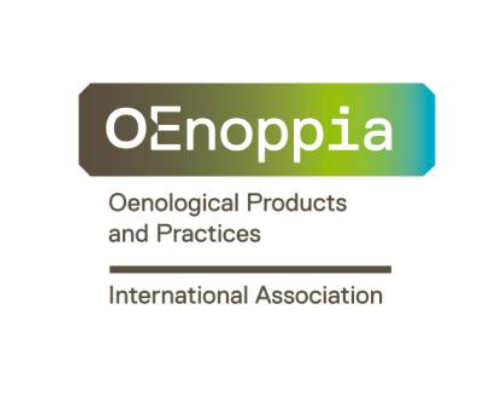
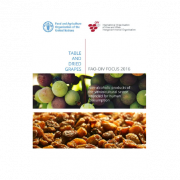
After focusing on sparkling wines in 2014 and rosé in 2015, the International Organisation of Vine and Wine (OIV) in collaboration with the Food and Agriculture Organization of the United Nations (FAO) presents a new study about this very important part of the OIV field of expertise, grapes being the fruit crop with the highest total value of production in the world.
The study presents some key facts regarding food use and the nutritional value of the grape family products, as well as time series since 2000 on domestic production, exports and imports, market size, and apparent consumption.
The Director General of the OIV, Jean-Marie Aurand, as well as the deputy Director of the Statistics Division of the FAO, José Rosero Moncayo underlined that this publication is the tangible output of the good and long-standing FAO-OIV cooperation.
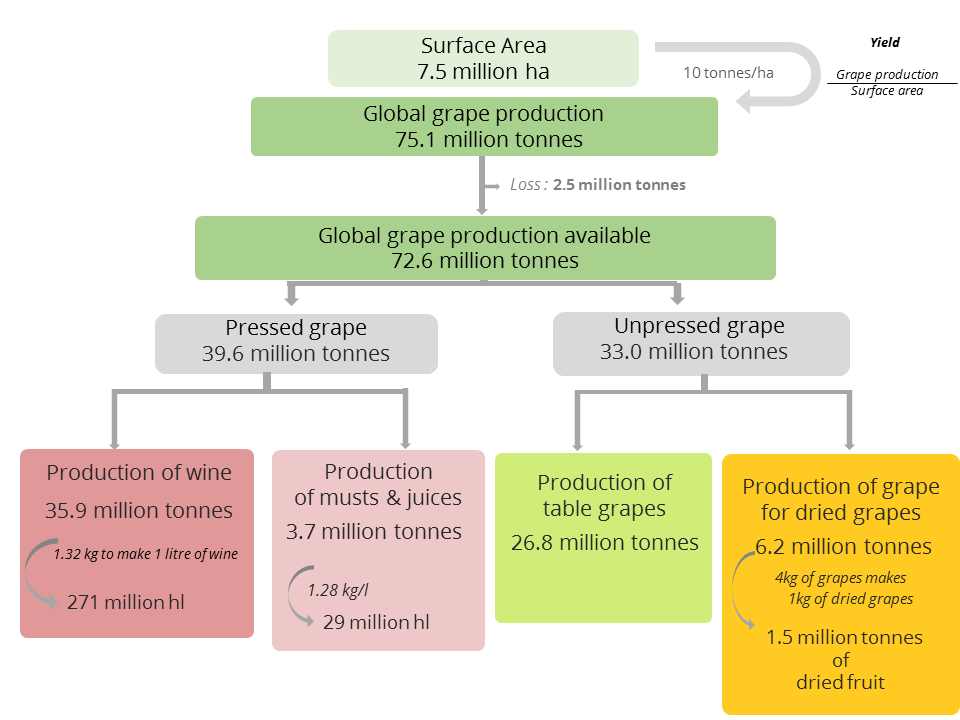
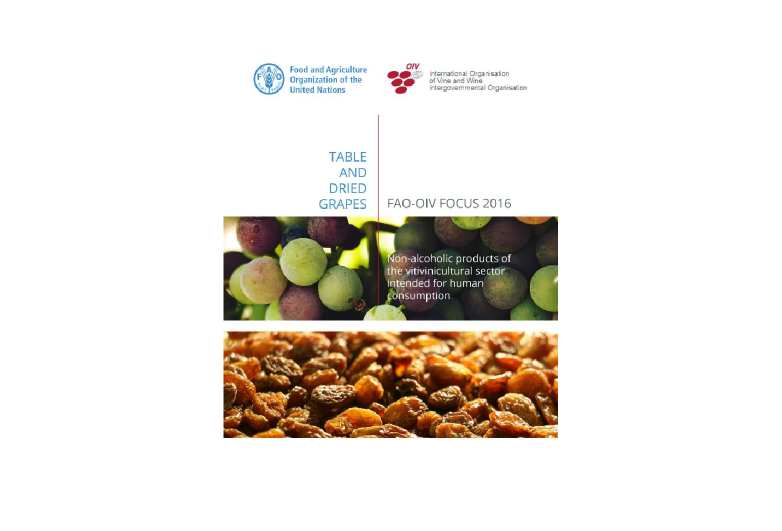
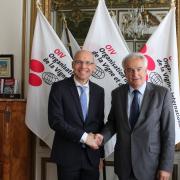
On this occasion, he expressed the wish to give new impetus to the collaboration between Slovenia and the OIV.
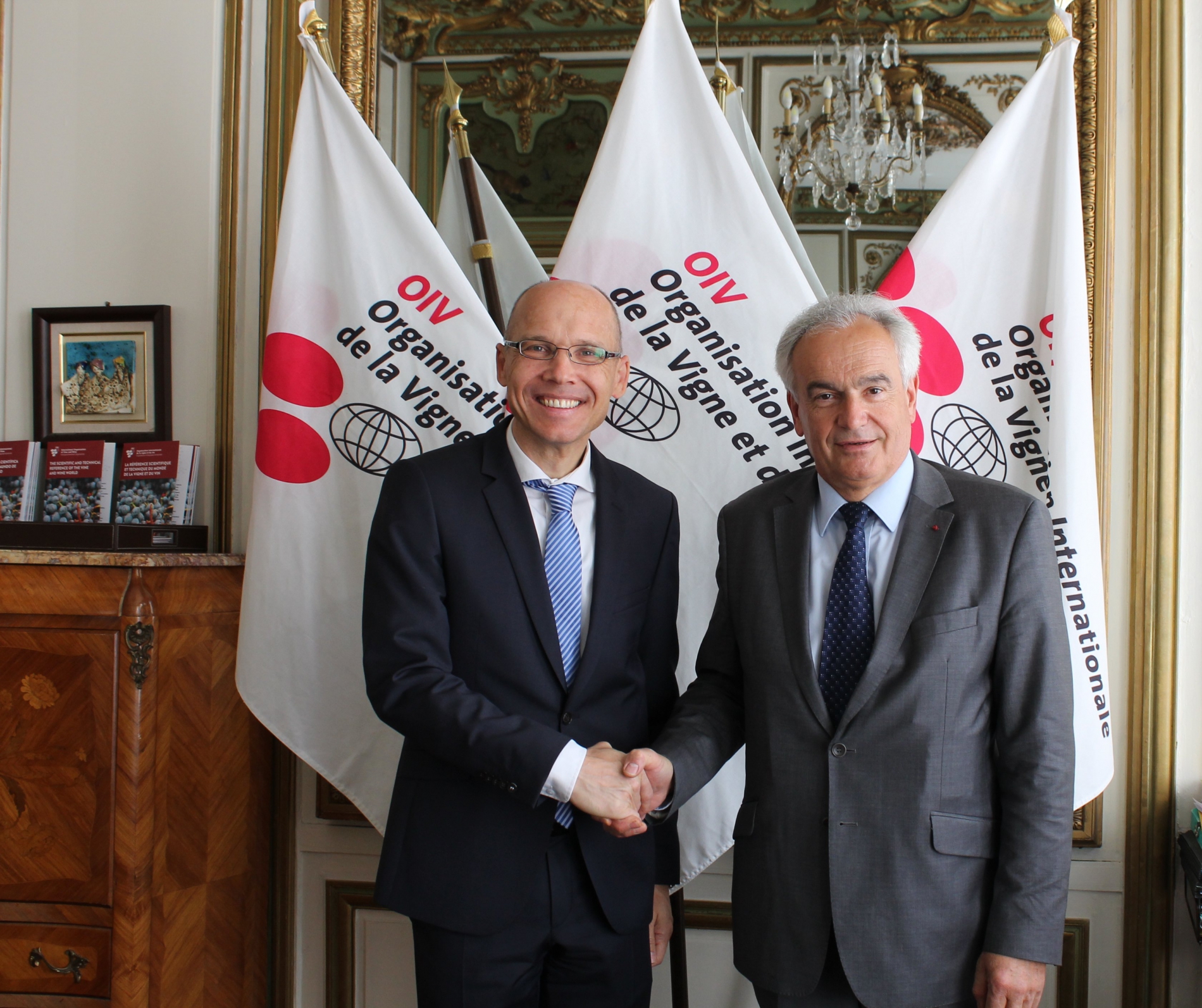
The Director General praised this desire, which falls within the framework of an already close collaboration; this is particularly reflected in the OIV's patronage of the Vino Ljubljana international wine competition, which will take place on 30 June to 2 July this year.
Jean-Marie Aurand called for an increased presence of Slovenian experts in the work of the OIV. He also mentioned the possibility of Slovenia organising a presentation of its wines at the Organisation's headquarters.
Slovenian viticulture has a long history. Its cultivation of vines dates back to Celtic times, 2500 years ago: Maribor's Stara Trta , planted in the 16th century, is considered the oldest vine in the world.
For several years now, the Slovenian vitivinicultural sector has seen a thorough revival with the relaunch of a policy of quality wines, drawing notably on a great variety of terroirs and the development of native vine varieties.
Slovenian production has established itself at an average of 600 000 hL of wines per year, 75% of each are white wines. More than 70% of wines benefit from a designation of origin.
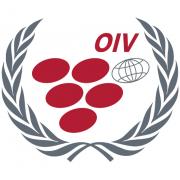
Originality and high quality of the submitted works characterize this very fine 2017 OIV Awards Edition.
2017 OIV Awards
Viticulture Award
La Vigne : ravageurs et auxiliaires - Volume 2
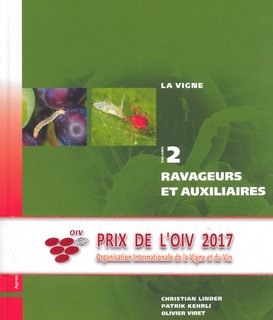
Christian Linder, Patrick Kehrli, Olivier Viret
Français / French
Suisse / Switzerland
Editions AMTRA (Suisse)
Œnology Award
Il respiro del vino
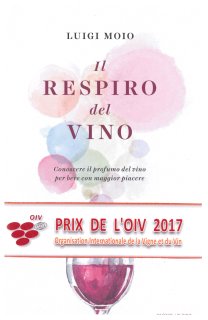
Luigi Moio
Italien / Italian
Italie / Italy
Mondadori Libri spa (Italia)
Vitivinicultural Economy Award
Il Marketing del Vino - capire, decidere, agire
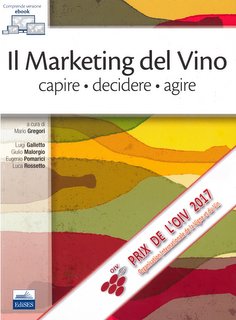
Mario Gregori, Luigi Galletto, Giulio Malorgio, Eugenio Pomarici, Luca Rossetto
Italien / Italian
Italie / Italy
EdiSES S.r.l. (Italia)
History, Literature and Fine Arts Award
Le Vin & le Sacré
A l'usage des hédonistes, croyants ou libres penseurs

Evelyne Malnic
Français / French
France
Editions Féret (France)
History Award
Les Femmes et la vigne
Une histoire économique et sociale (1850-2010)
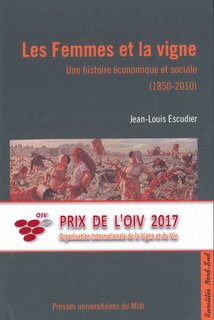
Jean-Louis Escudier
Français / French
France
Presses Universitaires du Midi PUM (France)
Wine and Health Award
Wine Safety, Consumer Preference, and Human Health
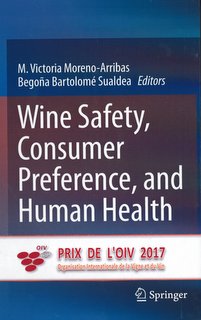
Collectif d’auteurs coordonné par / Collective of authors coordonated by :
Victoria Moreno-Arribas, Begoña Bartolomé Suáldea
Anglais / English
Espagne / Spain
Springer International Publishing (United States)
Discovering and Presenting Wines Award
Wine Tasting : A Professional Handbook, Third Edition
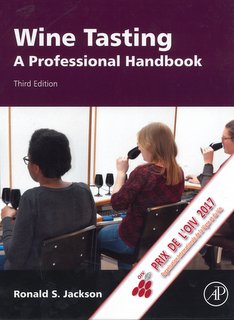
Ronald S. Jackson
Anglais / English
Canada
Elsevier (United States)
Wines and Territories Award
Paisagens do Vinhedo Rio-Grandense
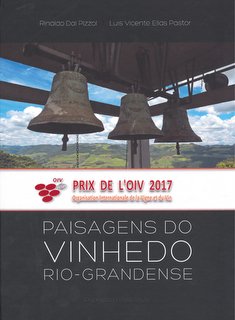
Rinaldo Dal Pizzol, Luis Vicente Elias Pastor
Portugais / Portuguese
Brésil / Brazil
Organização Doris Couto (Brasil)
Wines and Gastronomy Award
Vinárstvo & somelierstvo
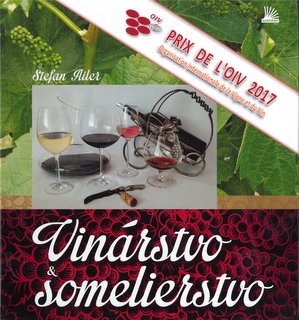
Štefan Ailer
Slovaque / Slovak
Slovaquie / Slovakia
AGRIPRINT s.r.o (Česká Republika)
Monographs Award
Nel solco degli emigranti
I vitigni italiani alla conquista del mondo
In the footsteps of migrants
The Italian grapes that conquered the world
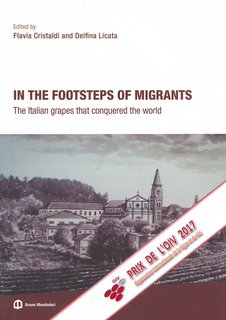
Flavia Cristaldi, Delfina Licata
Edité en italien et en anglais / Printed in Italian and English
Italie / Italy / Italia / Italien
Bruno Mondadori -Pearson (Italia)
2017 OIV Special Mentions
Viticulture special Mention
ZELENA KNJIGA : HRVATSKE IZVORNE SORTE VINOVE LOZE
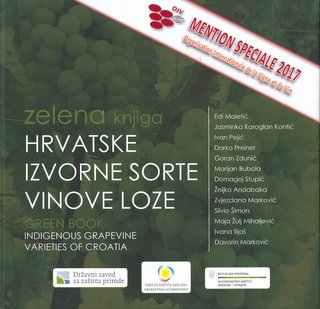
Collectif d’auteurs avec / Collective of authors with :
Edi Maletić, Jasminka Karoglan Kontić, Ivan Pejić
Croate avec introduction en anglais / Croatian with introduction in English
Croatie / Croatia
Croatian Agency for the Environment and Nature (Hrvatska)
Œnology and Viticulture special Mention
De l’Œnologie à la Viticulture
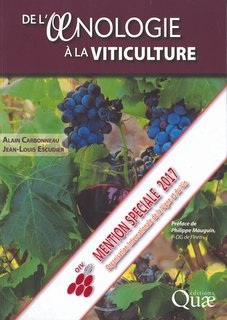
Alain Carbonneau, Jean-Louis Escudier
Français / French
France
Editions Quæ (France)
Vitivinicultural Economy special Mention
The Wine Value Chain in China
Consumers, Marketing and the Wider World
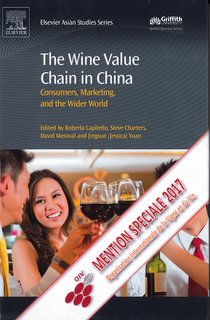
Collectif d’auteurs coordonné par / Collective of authors coordonated by :
Roberta Capitello, Steve Charters, David Menival, Jingxue (Jessica) Yuan
Anglais / English
Chine / China
Elsevier (Asian Studies Series) and Griffith University (UK)
Literature special Mention
Le vin, entre nature & culture
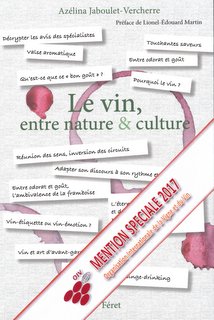
Azélina Jaboulet-Vercherre
Français / French
France
Editions Féret (France)
Discovering and Presenting Wines special Mention
A la rencontre des cépages modestes & oubliés
L’autre goût des vins
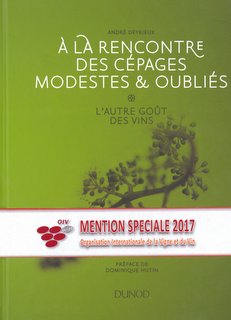
André Deyrieux
Français / French
France
Editions Dunod (France)
Monographs special Mention
Chianti Classico
The Search for Tuscany's Noblest Wine
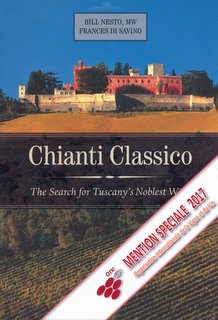
Bill Nesto, Frances Di Savino
Anglais / English
Etats-Unis (Italie) / United States (Italy)
University of California Press (United States)
Symposia Proceedings special Mention
Enologia Italiana del 1800
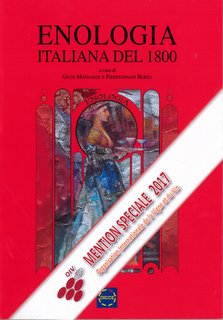
Collectif d’auteurs coordonné par / Collective of authors coordinated by :
Giusi Mainardi, Pierstefano Berta
Italien / Italian
Italie / Italy
Edizioni OICCE – EO (Italia)
Symposia Proceedings special Mention
Les Rencontres du Clos-Vougeot
Vin et civilisation, les étapes de l'humanisation
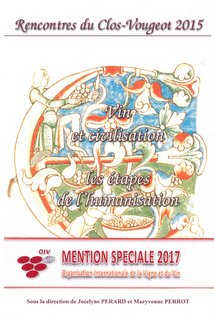
Collectif d’auteurs dirigé par / Collective of authors directed by :
Jocelyne Pérard, Maryvonne Perrot
Français / French
France
Chaire UNESCO "Culture et Traditions du Vin" de l'Université de Bourgogne (France)
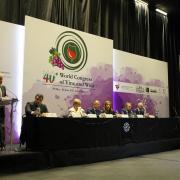
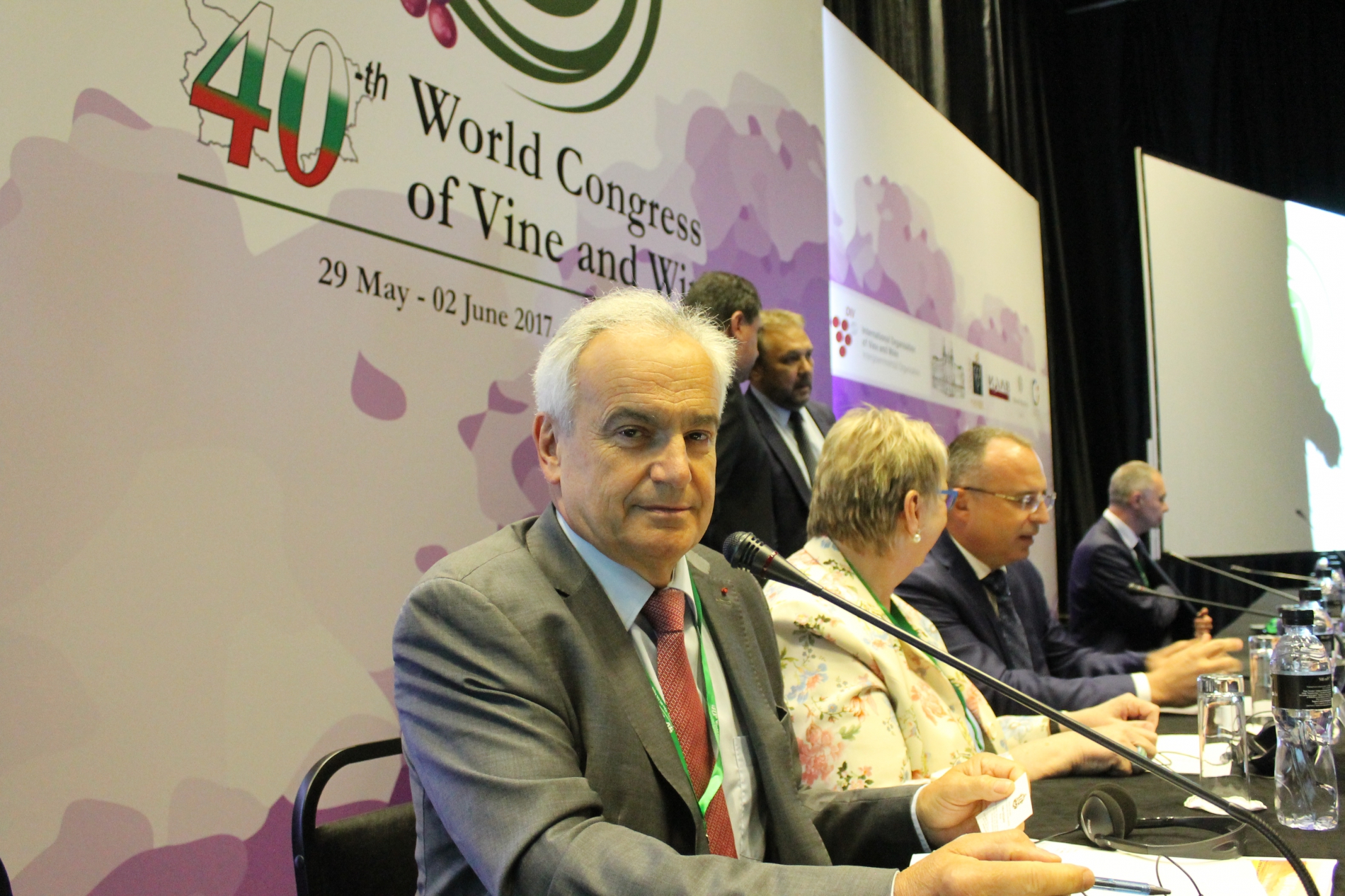
The report covers the vitivinicultural production potential, areas under vines, global wine production and consumption, and wine import and export volumes.
In 2016, the world area under vines rose to 7.5 mha.
Global grape production reached 75.8 mt in 2016.
2016 world wine production (excluding juice and musts) is estimated at 267 mhl.
World wine consumption in 2016 is estimated at 241 mhl.
Infrographics (initial information from the thematic report devoted to global vine diversity)